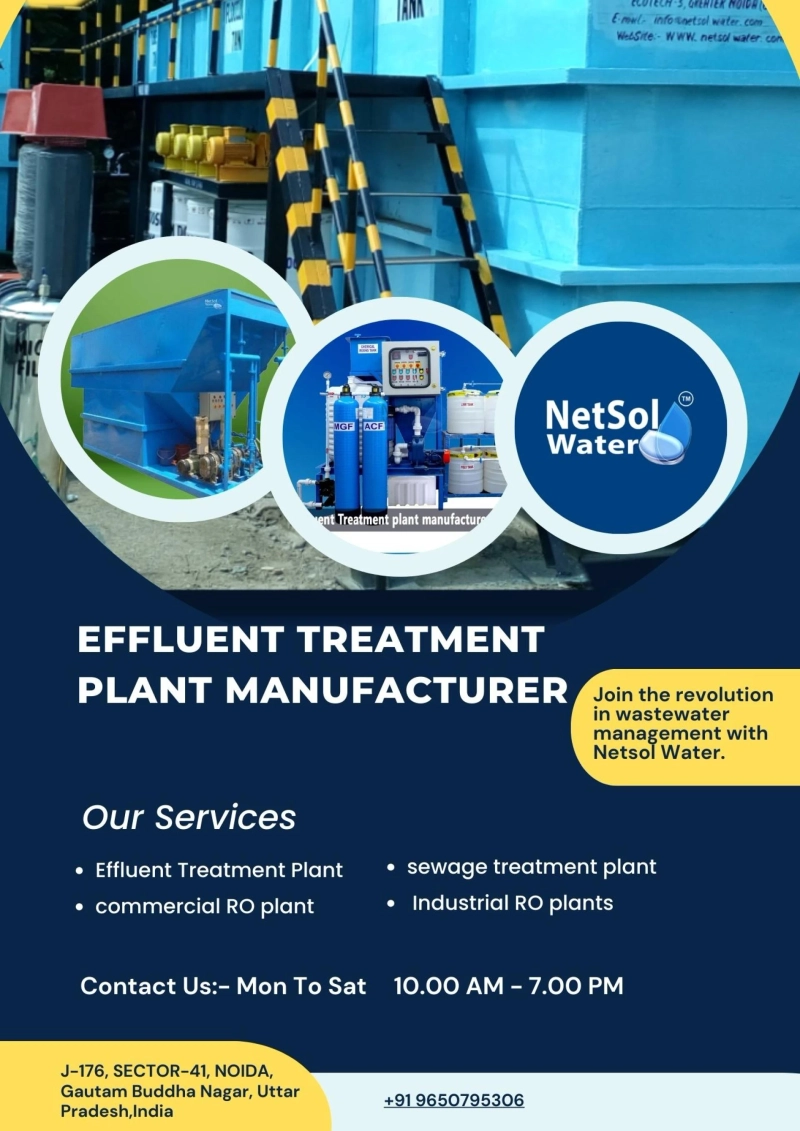In an era where environmental sustainability is no longer a choice but a necessity, the role of effluent treatment plant (ETP) manufacturers has become pivotal. These manufacturers are at the forefront of industrial transformation, ensuring that wastewater from various industries is treated effectively before being released back into the environment. This article explores the critical contributions of ETP manufacturers, the latest trends in the industry, and their impact on global sustainability efforts.
The Importance of Effluent Treatment Plants
Effluent treatment plants are designed to remove contaminants from wastewater, ensuring that the discharged water meets regulatory standards and is safe for the environment. Industries such as textiles, pharmaceuticals, chemicals, and food processing generate large volumes of wastewater laden with pollutants. Without proper treatment, these effluents can cause significant environmental damage, affecting aquatic life, soil health, and human health.
Innovations Driving the Industry
Advanced Treatment Technologies: Modern ETPs incorporate cutting-edge technologies like membrane bioreactors (MBRs), reverse osmosis (RO), and advanced oxidation processes (AOPs). These technologies enhance the efficiency of pollutant removal and enable the recycling and reuse of treated water within industrial processes.
Automation and IoT Integration: The integration of automation and Internet of Things (IoT) in ETPs has revolutionized plant operations. Smart sensors and real-time monitoring systems ensure optimal performance, reduce downtime, and provide valuable data for predictive maintenance. This leads to increased efficiency and cost savings for industries.
Sustainability and Energy Efficiency: ETP manufacturers are increasingly focusing on sustainable practices. Innovations like energy-efficient aeration systems, sludge management solutions, and the use of renewable energy sources are gaining traction. These efforts not only reduce the environmental footprint of ETPs but also align with global sustainability goals.
Customized Solutions: Recognizing that each industry has unique effluent characteristics, manufacturers are offering customized treatment solutions. This approach ensures that the treatment process is tailored to specific needs, enhancing effectiveness and compliance with stringent environmental regulations.
Key Players and Market Dynamics
The ETP manufacturing industry is witnessing robust growth, driven by stringent environmental regulations and increasing awareness about sustainable industrial practices. Key players in the market include Veolia Water Technologies, Suez Water Technologies & Solutions, Thermax Limited, and WABAG Water Technologies. These companies are investing heavily in research and development to introduce innovative and efficient treatment solutions.
Challenges and Opportunities
While the ETP industry is on an upward trajectory, it faces several challenges. High initial capital investment and operational costs can be a deterrent for small and medium enterprises. Additionally, the complexity of treating diverse effluents requires continuous technological advancements and skilled workforce.
However, these challenges present significant opportunities for growth and innovation. The rising demand for zero liquid discharge (ZLD) systems, which ensure that no wastewater is discharged from the plant, is one such opportunity. Moreover, government incentives and subsidies for adopting sustainable practices can further drive the adoption of advanced ETPs.
Future Outlook
The future of effluent treatment plant manufacturing looks promising, with a strong emphasis on sustainability, innovation, and efficiency. As industries worldwide strive to meet environmental regulations and corporate social responsibility (CSR) goals, the demand for state-of-the-art ETPs is expected to surge. Collaboration between governments, industries, and ETP manufacturers will be crucial in achieving a cleaner and greener future.
Conclusion
Effluent treatment plant manufacturer are playing a critical role in shaping a sustainable industrial landscape. Through technological advancements, customized solutions, and a focus on energy efficiency, they are ensuring that industrial wastewater is treated effectively and responsibly. As the world continues to prioritize environmental sustainability, the ETP industry is poised for significant growth, making it a cornerstone of modern industrial practices.
For industries looking to adopt sustainable practices, partnering with innovative ETP manufacturers is not just a regulatory requirement but a strategic move towards a sustainable future.



